Autophagy proteins suppress protective type I interferon signalling in response to the murine gut microbiota
- PMID: 30202015
- PMCID: PMC6179362
- DOI: 10.1038/s41564-018-0229-0
Autophagy proteins suppress protective type I interferon signalling in response to the murine gut microbiota
Abstract
As a conserved pathway that lies at the intersection between host defence and cellular homeostasis, autophagy serves as a rheostat for immune reactions. In particular, autophagy suppresses excess type I interferon (IFN-I) production in response to viral nucleic acids. It is unknown how this function of autophagy relates to the intestinal barrier where host-microbe interactions are pervasive and perpetual. Here, we demonstrate that mice deficient in autophagy proteins are protected from the intestinal bacterial pathogen Citrobacter rodentium in a manner dependent on IFN-I signalling and nucleic acid sensing pathways. Enhanced IFN-stimulated gene expression in intestinal tissue of autophagy-deficient mice in the absence of infection was mediated by the gut microbiota. Additionally, monocytes infiltrating into the autophagy-deficient intestinal microenvironment displayed an enhanced inflammatory profile and were necessary for protection against C. rodentium. Finally, we demonstrate that the microbiota-dependent IFN-I production that occurs in the autophagy-deficient host also protects against chemical injury of the intestine. Thus, autophagy proteins prevent a spontaneous IFN-I response to microbiota that is beneficial in the presence of infectious and non-infectious intestinal hazards. These results identify a role for autophagy proteins in controlling the magnitude of IFN-I signalling at the intestinal barrier.
Conflict of interest statement
The authors declare no competing financial interests.
Figures
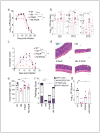
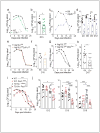
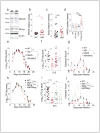
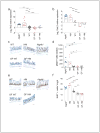
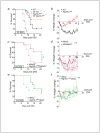
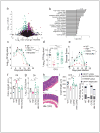
Comment in
-
Taming the beasts within.Nat Microbiol. 2018 Oct;3(10):1080-1081. doi: 10.1038/s41564-018-0264-x. Nat Microbiol. 2018. PMID: 30254330 No abstract available.
References
Publication types
MeSH terms
Substances
Grants and funding
LinkOut - more resources
Full Text Sources
Other Literature Sources
Molecular Biology Databases
Research Materials

